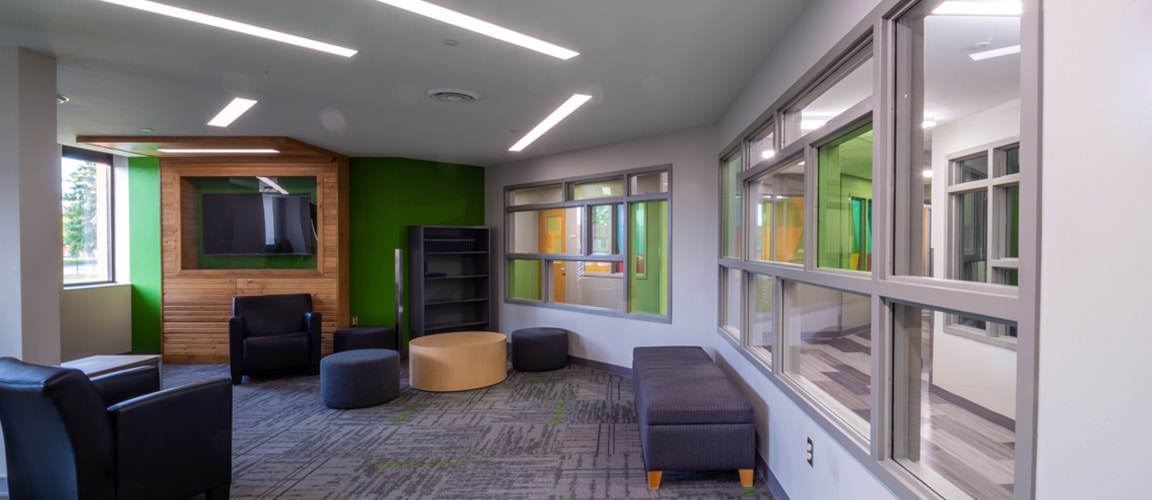Address
380 West Second St.
Dayton, OH 45422

Two-Track Program Structure
The Nicholas Center features two specialized tracks:
Behavioral Intervention Program:
This track serves youth who exhibit serious behavior problems and may be at risk for re-offending. It focuses on addressing criminogenic risk factors through evidence-based programming, intensive case management, and structured daily routines. Youth participate in group therapy, skill development workshops, and individualized support. Cognitive-behavioral interventions and character education are central to this program, alongside education, vocational training, and reintegration planning. Most youth in this track remain in the program for six to twelve months, depending on their individual progress.
Substance Abuse Treatment Program:
Designed for youth diagnosed with a substance use disorder, this track provides intensive, trauma-informed treatment in collaboration with South Community’s certified professionals. Participants engage in a minimum of 20 hours per week of substance use and co-occurring disorder services, using The Seven Challenges curriculum. In addition to clinical interventions, youth also benefit from education, structured activities, and support for relapse prevention and family reintegration.
Case Management and Family Engagement
Each youth is assigned a case manager who coordinates their treatment, communicates with families and stakeholders, and ensures consistency throughout their stay. Families are considered essential partners in the treatment process. NRTC’s family services include:
Positive Behavior and Incentive System
The behavioral management system at NRTC is designed to promote accountability, self-discipline, and personal growth. Youth earn privileges through a structured level system that rewards progress in treatment, good behavior, and academic achievement. Privileges may include extended recreation time, special outings, home visits, or other incentives that support motivation and engagement.
Recreation and Enrichment
In addition to clinical and educational programming, youth participate in a wide range of recreational and enrichment activities. These include sports, art, and structured free time. NRTC partners with local organizations like HAALO and K12 to provide additional cultural, educational, and artistic experiences. Special events, Friday activities, and community service projects are tied to treatment progress and help youth learn how to use their time positively.
Transition and Aftercare Planning
From day one, the Nicholas team begins preparing each youth for their eventual return to the community. Transition plans are customized and may include referrals to outpatient counseling, assistance with school re-enrollment, connection to job training programs, and ongoing case management support. The ultimate goal is for every youth to leave the program with a strong foundation and the tools to succeed in school, work, and life.
380 West Second St.
Dayton, OH 45422
(937) 496-7908
Weekdays: 8:30AM–4:30PM
Weekends: CLOSED
Montgomery County Juvenile Court
©2025 All Rights Reserved | Made by Jetpack
